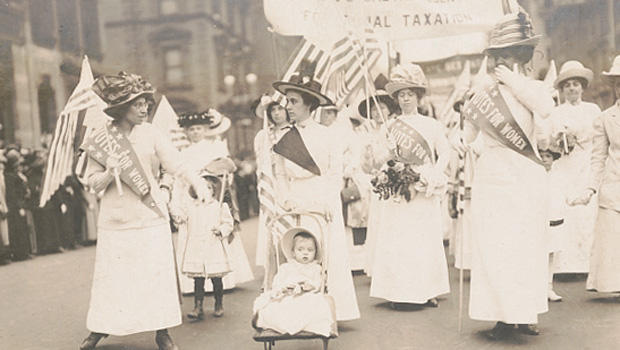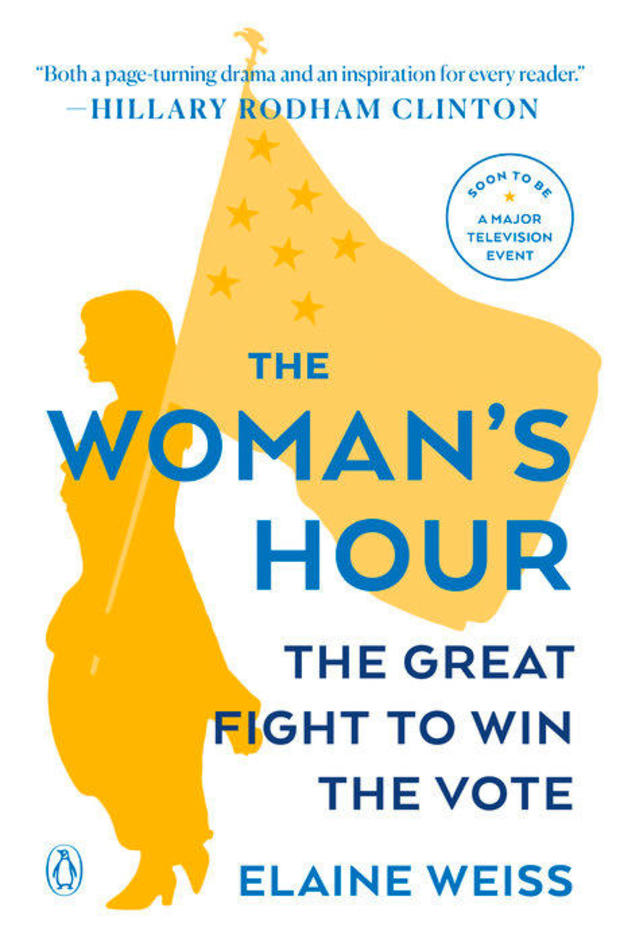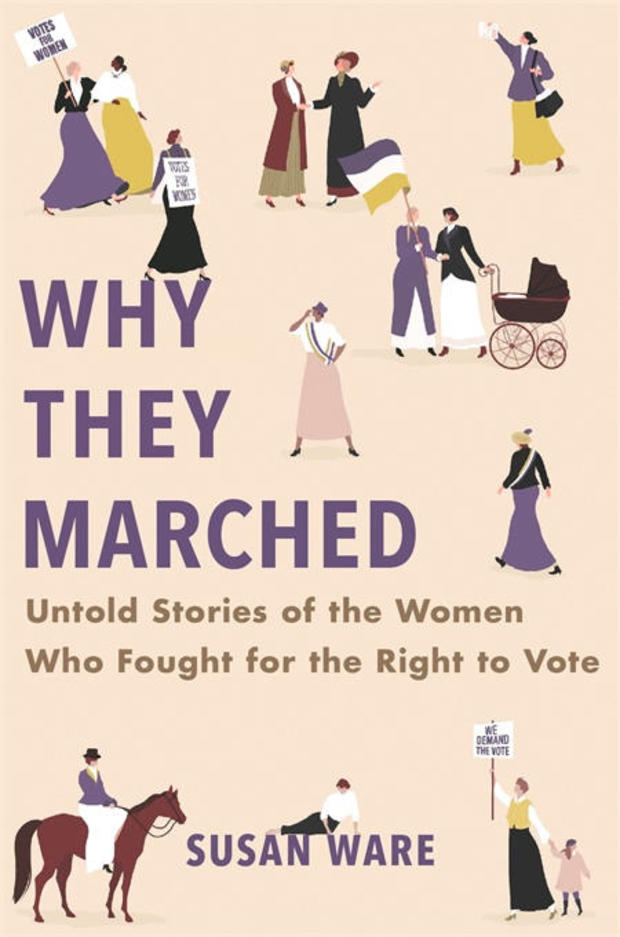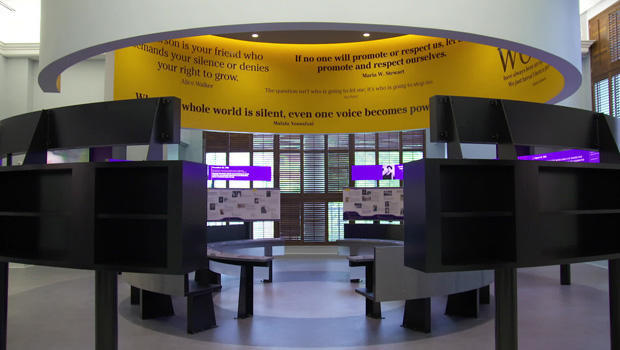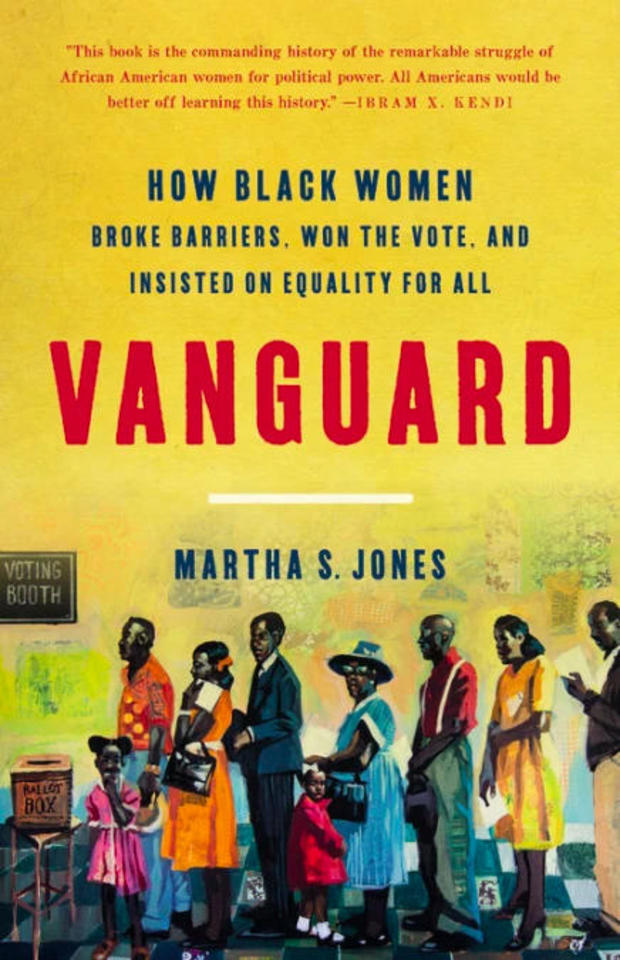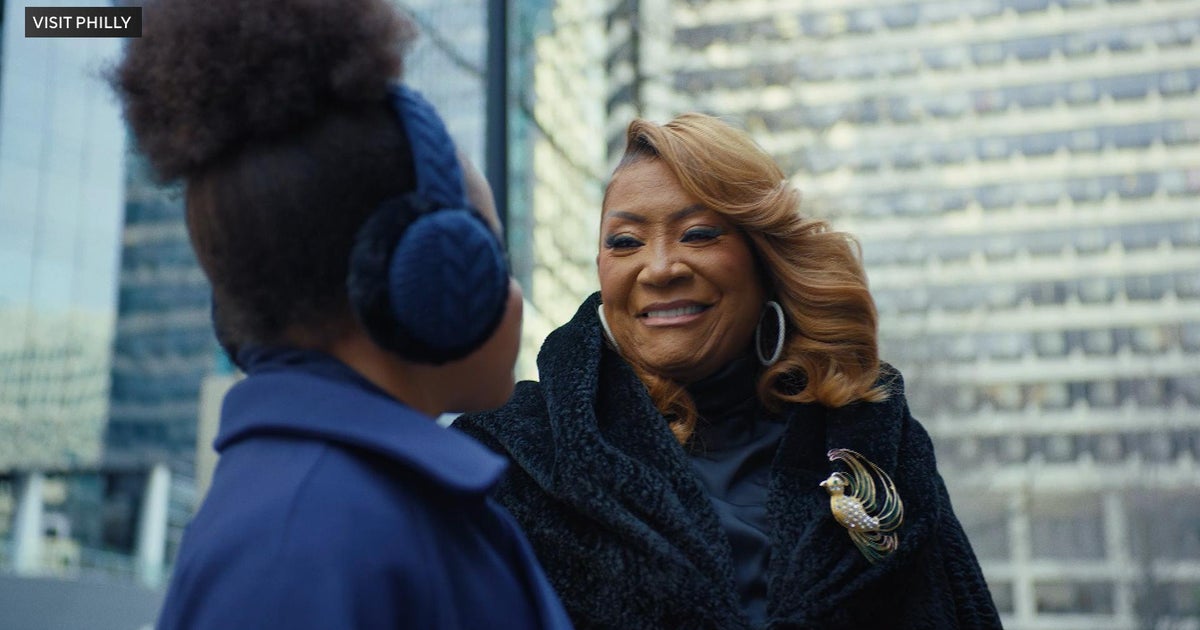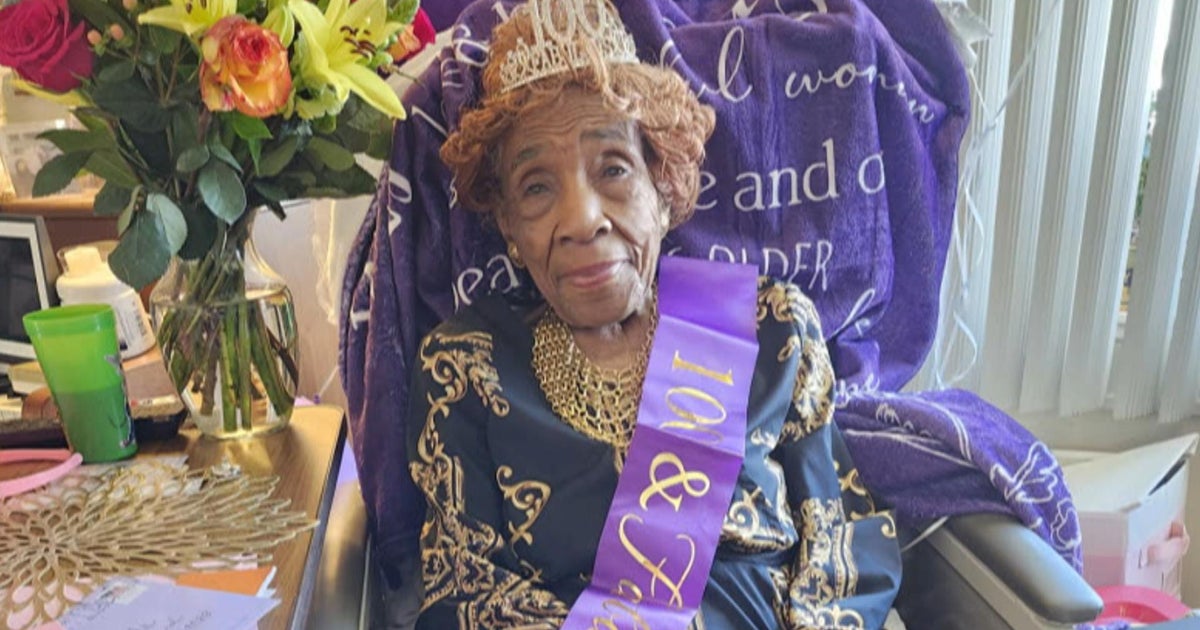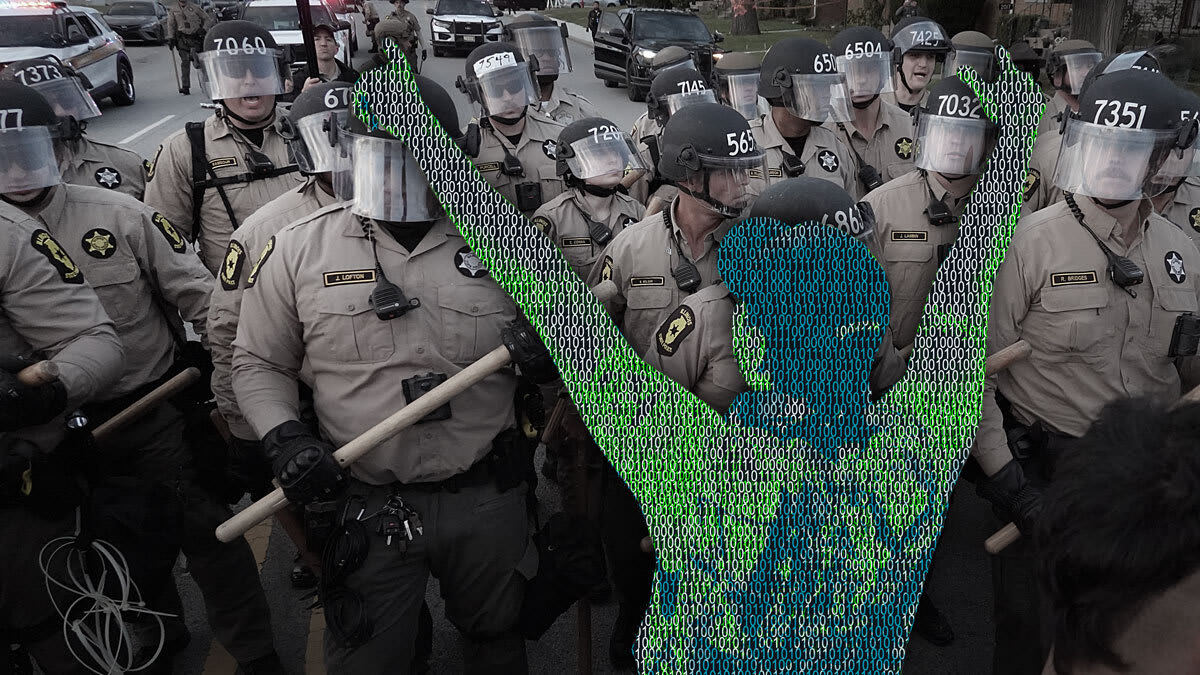How suffragists finally won the right to vote for women
Last Tuesday, with banners, bells, streamers and skydives, Nashville celebrated the 100th anniversary of the ratification of the 19th Amendment, giving women the right to vote.
Rosanne Cash added her voice to the celebration: "We the woman earned the right to vote. Now is the time to ring those bells!"
Cash told "Face the Nation" moderator Margret Brennan, "Around Nashville and around Tennessee, we all rang bells. And I rang one from here in New York!"
But back in 1920, the city was stunned to silence. "Bells and whistles and all kinds of things were ringing across the country, but not in Nashville," said Jeanie Nelson. "It was still too raw, controversial."
Nelson and Margaret Behm, both Nashville attorneys, raised almost $4 million to create a "Votes for Women Room" at the Nashville Public Library.
"We really want to make sure that when people leave this room, they understand that women weren't given the vote, that it was a bitter struggle," said Behm. "It was a battle, and it almost didn't happen."
By August of 1920, 35 states had ratified the 19th Amendment. Only one more was needed.
"The suffragists realized that there's only one state where it's at all possible that they might be able to eke this out, and that is Tennessee," said historian Elaine Weiss, who has written about that pivotal moment in her book, "The Woman's Hour: The Great Fight to Win the Vote."
Leading suffragists, like Carrie Chapman Catt, gathered at the Hermitage Hotel in Nashville, armed with opposition files. "They had to take hold of the levers of power, and they had to learn the game," said Weiss.
Catt was the leader of the main suffrage organization. "She'd been involved in the movement since the 1880s," said historian Susan Ware, author of "Why They Marched: Untold Stories of the Women Who Fought for the Right to Vote." "She's ready to bring this to a close."
An army of anti-suffragists was there as well.
Brennan asked, "So, what is their rationale?"
"For some, it is a religious and moral decision," said Ware. "Some feel that women seeking equality will lead to a disruption of gender roles. For others, especially in the South, they are racist and they don't want Black women to vote."
Weighing in on the anti-suffragist side, said Weiss, were "corporate interests that don't want women to get the ballot. They fear that if women can vote, they are going to want to abolish child labor."
Fearing that female voters would block any repeal of Prohibition, the liquor lobby kept a suite on the 8th floor of the Hermitage Hotel – free drinks for legislators, 24/7.
Brennan asked, "They're liquoring up the legislators?"
"You bet!" said Weiss. "And Carrie Chapman Catt asks, as of one point, 'Is every legislator drunk?' And she's told, 'Yes, yes, they are!'"
"The challenge of women's suffrage was always that it was going to be men who were going to make the decision," Ware said. "And you had to be able to find ways to encourage them to perhaps take a step that they might not otherwise."
The stakes were high, with the 1920 presidential election just around the corner.
Ten weeks out from the November election, it was not clear whether or not 27 million Americans would be allowed to vote. "The dreams of three generations of suffragists and 27 million women are riding on this," Weiss said.
It had been a long road since Elizabeth Cady Stanton and Lucretia Mott held one of the first equal rights conventions in Seneca Falls, N.Y., in 1848. Women had marched, they had organized, they had lobbied Congress, picketed the White House, and gotten arrested.
And now, on the eve of the vote in Tennessee… "The night before, the suffragists realize, they do the math and they're not going to be able to pull it out," Weiss said. "They're going to be a little bit short. Their support has just dissolved."
The next morning, as crowds gather at the State House, 24-year-old Harry T. Burn intends to vote "No."
Weis said, "But that morning, he receives a letter from his mother. She says, 'I've noticed that in the newspapers, it doesn't say that you're supporting ratification. Be a good boy and support Mrs. Catt and get ratification through.' Be a good boy! And he votes 'Aye,' and pandemonium ensues."
In 1963, on the CBS News series "Twentieth Century," Harry T. Burn told Walter Cronkite about that day: "I always favored votes for women. When I was confronted with the fact that I was going to go on record for time and eternity on the merits of the question, I voted in favor of ratification."
And so, on August 26, 1920, the Susan B. Anthony Amendment became the law of the land. An 80-year struggle was won.
As Carrie Chapman Catt put it: "Young suffragists who helped forge the last links of that chain were not born when it began. Old suffragists who forged the first links were dead when it ended."
But for Black women, the fight was far from over.
"Black women anticipate that even after the 19th Amendment is ratified, that they will face poll taxes, they will face literacy tests, they will face intimidation and violence," said historian Martha S. Jones, whose book, "Vanguard: How Black Women Broke Barriers, Won the Vote, and Insisted on Equality for All," traces Black women's role in the continuing fight for equality.
"Black suffragists are the universal suffragists," Jones said. "From the beginning of the 19th century on through the 19th Amendment and all the way to the Voting Rights Act of 1965, it is African-American women who sound the call: 'No racism, no sexism in American politics.'"
Testimony to the strength, steeliness and diversity of the women who fought for equal rights, and continue to do so today.
Margaret Behm said, "When you're asking, 'What is the role of women? Who gets the vote? And those in power, what they do sometimes to keep people from voting?' All of these issues were there in 1920, and are still here today."
For more info:
- "The Woman's Hour: The Great Fight to Win the Vote" by Elaine Weiss (Viking), in Trade Paperback, eBook and Audio formats, available via Bookshop.org
- elaineweiss.com
- "Why They Marched: Untold Stories of the Women Who Fought for the Right to Vote" by Susan Ware (Belknap Press), in Hardcover, Trade Paperback, eBook and Audio formats, available via Bookshop.org
- susanware.net
- "Vanguard: How Black Women Broke Barriers, Won the Vote, and Insisted on Equality for All" by Martha S. Jones (Basic Books), in Hardcover, eBook and Audio formats, available September 8 via Bookshop.org
- rosannecash.com
- Votes for Women: Legacy of the 19th Amendment (Nashville Public Library)
- Nashville Public Library
- Hermitage Hotel, Nashville
- Mary McLeod Bethune Council House National Historic Site, Washington, D.C.
- Belmont-Paul Women's Equality National Monument, Washington, D.C.
- All Female Highlight Pro Skydiving Team
- 19th Amendment (National Constitution Center)
Story produced by Mary Lou Teel and Kelsey Micklas. Editor: George Pozderec.
